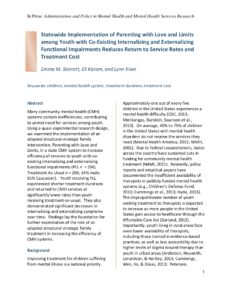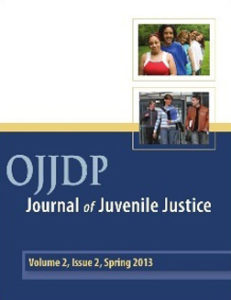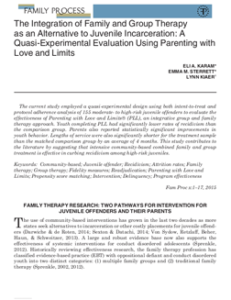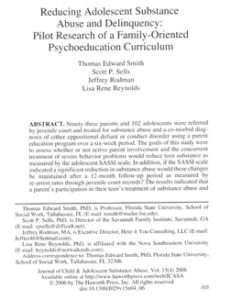Family Systems Trauma techniques are a component of the PLL evidence-based model developed by Dr. Scott Sells through intensive research with families and youth. View the full PLL Logic Model here. The PLL Evidence-Based Family Treatment Model repeatedly is recognized for its outcomes in helping restore families. Below is a list of publications highlighting the effectiveness of the PLL evidence-based model.

Sterrett-Hong, E.M., Karam, E., & Kiaer, L. Statewide Implementation of Parenting with Love and Limits among Youth with Co-Existing Internalizing and Externalizing Functional Impairments Reduces Return to Service Rates and Treatment Cost. Adm Policy Ment Health (2017). doi:10.1007/s10488-016-0788-4
In this QE study, the implementation of PLL with the State of Idaho Community Mental Health service was examined with the program intent of increasing efficiency of services to youth with co-existing internalizing and externalizing functional impairments. This study found that the treatment group experienced shorter tratment durations and returned to CMH services at significantly lower rates than the treatment-as-usual group. The treatment group also demonstrated significant decreases in internalizing and externalizing symptoms over time.

Winokur-Early, K., Chapman, S., & Hand, G. (2013). Family-Focused Juvenile Reentry Services: A Quasi-Experimental Design Evaluation of Recidivism Outcomes. Journal of Juvenile Justice. V2, N2, 1-22.
This quasi-experimental study looked to evaluate the impact of a manualized reentry intervention with youth and their families beginning while the youth were incarcerated and continued through transition and into aftercare. This study examined recidivism outcomes for youth receiving services compared with a matched comparison sample, and showed improved outcomes for the PLL treatment group.

Karam, E.A., Sterrett, E.M., Kiaer, L (2016) The Integration of Family and Group Therapy as an Alternative to Juvenile Incarceration: A Quasi-Experimental Evaluation Using Parenting with Love and Limits. Family Process, accepted for publication.
In this study, the PLL treatment group had significantly lower rates of recidivism than the comparison group. The PLL treatment group also reported statistically significant improvements in youth behavior. Lengths of service were also significantly shorter for the treatment sample than the matched comparison group. This study was conducted in Champaign County, Illinois and included a population of 70% whose race was identified as black.

Sells, S.P., Smith, T.E., Rodman, J., & Reynolds, L.R. (2003) Reducing Adolescent Substance Abuse and Delinquency: Pilot Research of a Family-Oriented Psychoeducation Curriculum. Journal of Child and Adolescent Substance Abuse., 15, 105-115.
This study looked at families who attended a PLL based substance abuse prevention program. The results indicate that parents’ participation in adolescents’ treatment of substance abuse and severe behavioral problems can have a major positive impact on program effectiveness.
